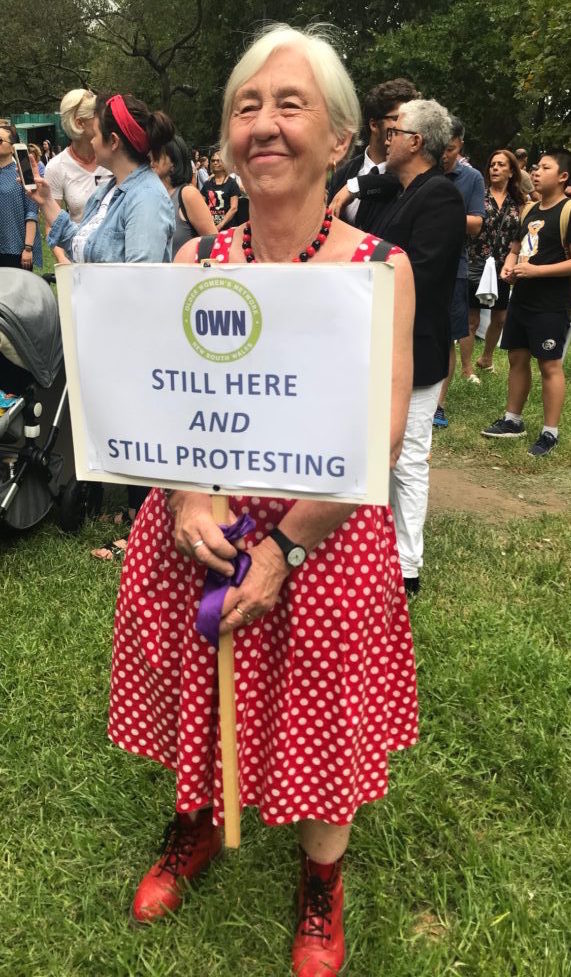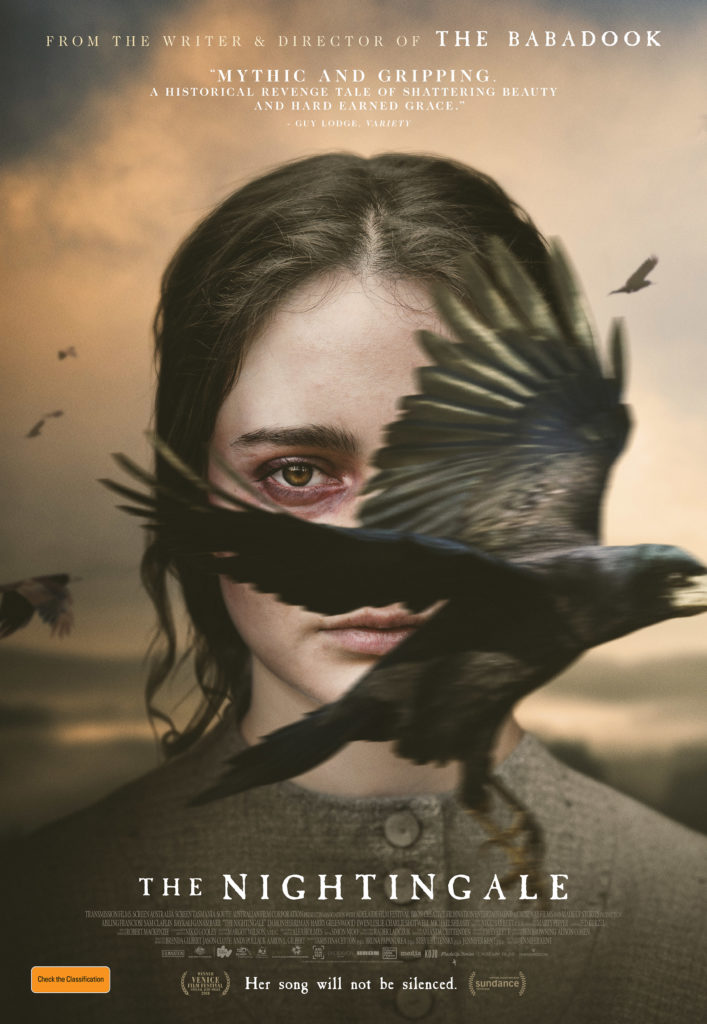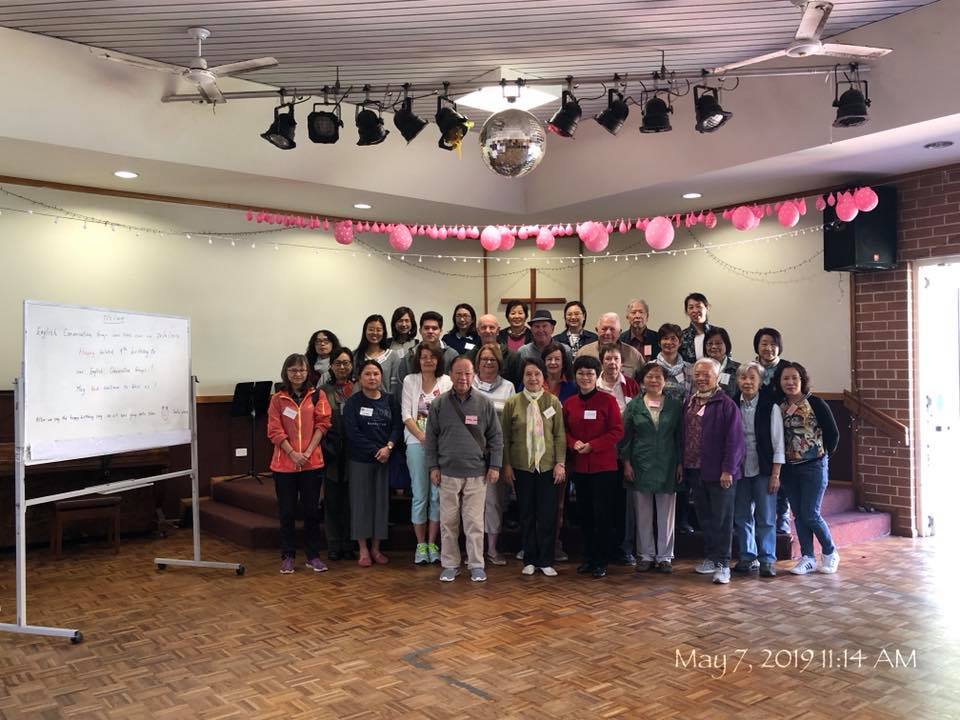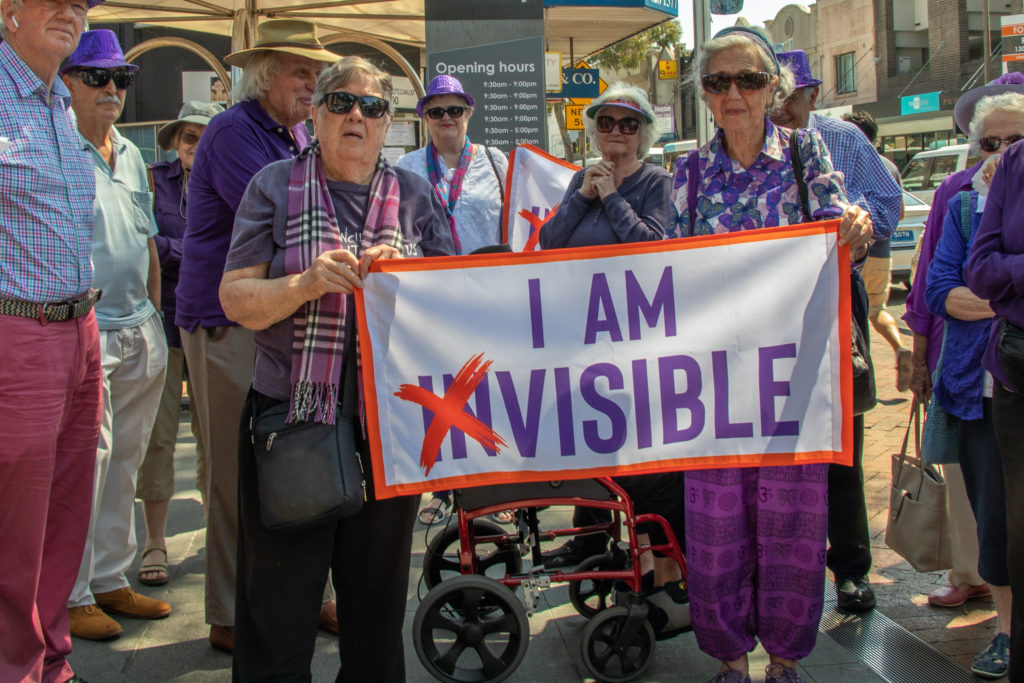
To mark the International Day of the Older Person Cate Turner had the idea of marching through her suburb carrying this banner. For almost 25 years Cate has been a member of the Older Women’s Network, and now holds positions on the organisation’s Sydney, NSW and National bodies, as well as the Lane Cove Council’s Age Friendly Committee. Cate is one of the remarkable women I have interviewed for my History Beyond the Classroom project. Cate is indomitable; she celebrated her 90th birthday last year with a trip to Paris with her nephew.
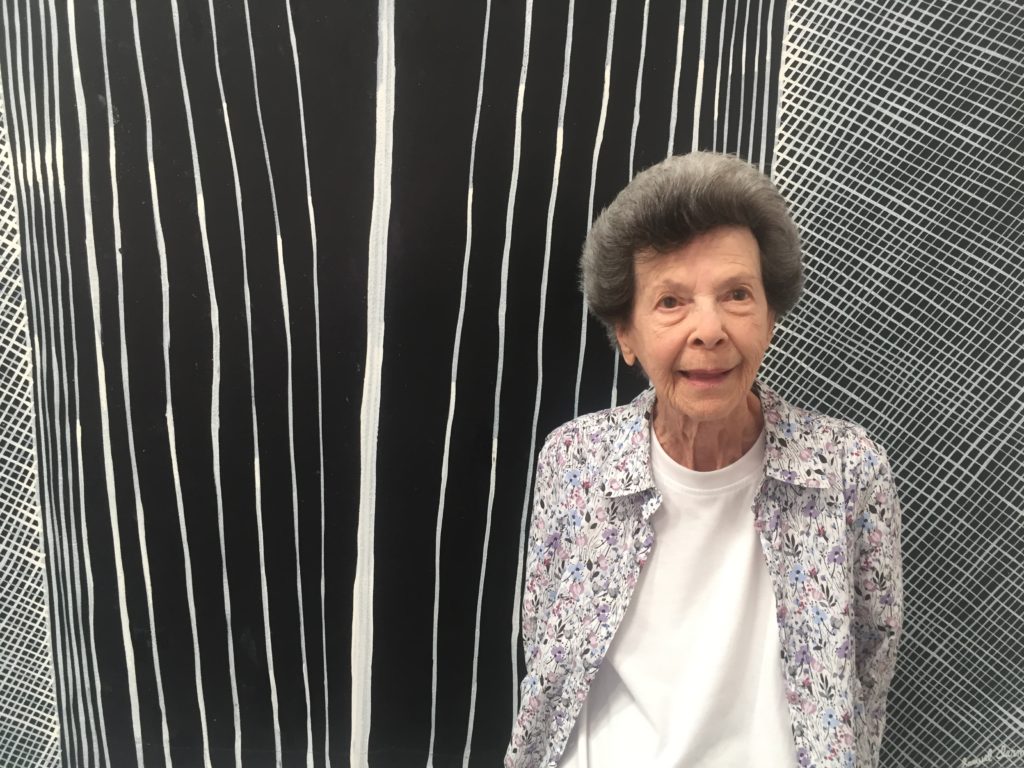
A few weeks later, I met Cate again at the Boomalli Indigenous Art Gallery in Leichhardt with an OWN group visiting the new Anarchy and Alchemy show. She’s also a member of OWN’s long running Aboriginal Support Circle. For twenty-five years, these women have been quietly working on reconciliation, driven by their motto: listen – learn – understand. Their unofficial leader is a poised and unassuming woman, Pat Zinn who is almost ninety. She experienced life under apartheid in South Africa, but defied the system by helping to set up preschools in black townships in Capetown. When she left South Africa in despair in 1991, Pat wanted to learn about Australia’s Indigenous culture in her new country, and the Older Women’s Network has been her vehicle. Pat Zinn’s story is one I have captured for the new website, in a section called ‘Stories’, a celebration of some of OWN’s long serving members.
The members of the group range from late fifties upwards, there are many in their eighties and some in their nineties who’ve been members for more than two decades. As I have discovered through recording their histories and documenting the achievements of the organisation, many women in this generation did it tough, and still face struggles with financial security, elder abuse and sheer invisibility. Nonetheless, they project a feisty spirit, great camaraderie and have learned much from each other.
As a generally unsung but active organisation, I want to demonstrate through the timeline of achievements and individual profiles that OWN has been at the forefront of many struggles affecting women, especially older women who largely missed out on the benefits of higher education, career choices and economic independence through equal pay and superannuation.
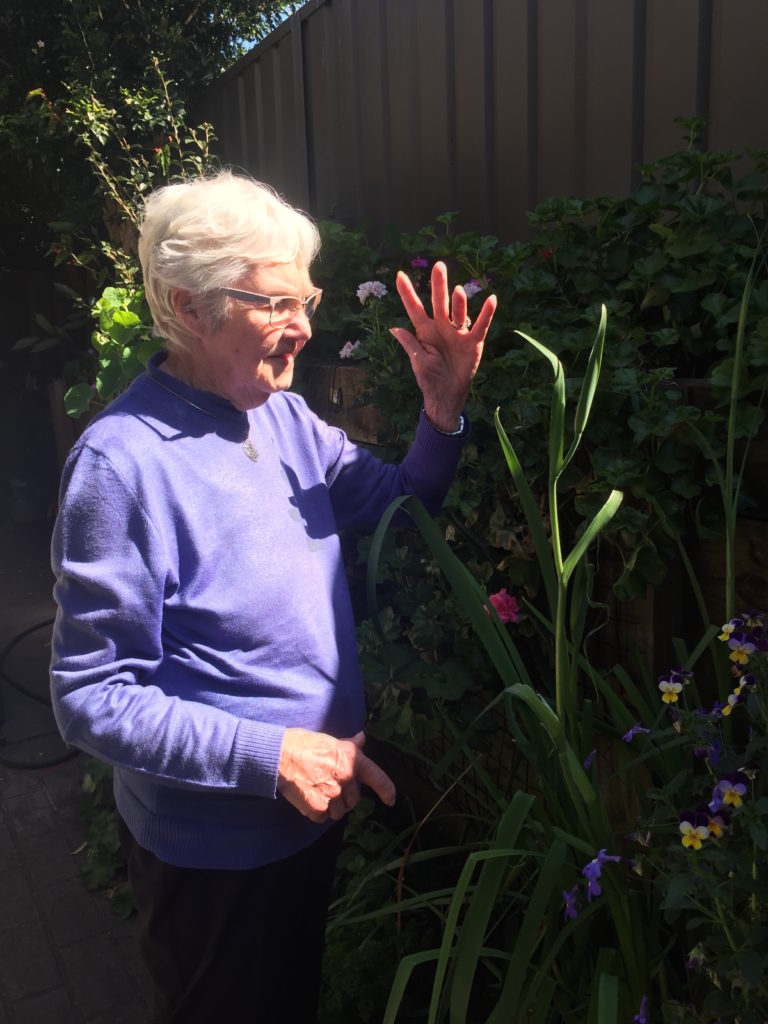
The women I have interviewed embody these themes. Barbara Malcolm, aged 85 can recall the day in 1939 World War Two was declared, on the radio by Prime Minister Robert Menzies. But her young life was most affected by the divorce of her parents; her father leaving Barbara aged ten and three younger siblings in a small country town. She left school at thirteen to help her mother who worked overnights in a factory. Barbara has been at the forefront of launching and running wellness activities for women in the Illawarra for OWN, from Scottish dancing to Argentinian drumming and meditation. Cate Turner enjoyed a secondary education but teaching was one of the few careers open to her. She switched to Human Resources roles, but despite many decades in senior positions has no superannuation or home ownership.
Having lost some long serving members in the past two years, there’s a sense of urgency in getting the stories of older members recorded. This is a work in progress, and the new comprehensive OWN site is unlikely to be completed by the deadline for this project, but it should be up and running by the end of 2019. OWN would like to build the ‘Stories’ section to include many more profiles. These members’ stories could also feature in shorter formats on other OWN platforms such as their facebook page, twitter, and their regular newsletter.
This has been a personally enriching and rewarding project. It has attuned me to the importance of staying engaged and active during later life, and of giving back through volunteering. It has been a privilege to record the stories of these modest, good humoured and undervalued women, and their organisation that has done so much to put issues affecting older women on the agenda.
